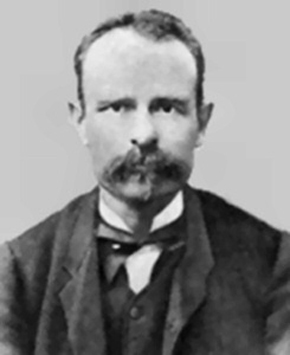
Cantoni was born in Milan in 1818, where he also died in 1897.
He studied at the University of Pavia, following courses of the Philosophy and Mathematics department and earning a doctorate with honours in Engineering and Architecture.
He was a firm believer in the relation involving philosophy and science, and wanted to conduct a detailed study of the connection between philosophers’ and mathematicians’ assertions and experimentalists’ theories. The goal was to found a General Physics that was truly philosophical and that corresponded to ancient times cosmology
so that the sciences, pertaining to the sensible universe, could all find in it their point of connection, or better yet, the common centre to their general principles and their single theories.
He was also an ardent patriot, a republican and an anticlerical; in 1848, he was among the organisers of the Five Days of Milan (a short lived yet prominent insurrection).
In 1859 he was tasked with teaching Physics at the Royal Highschool of Milan, and the following year he was offered the chair of Physics at the University of Pavia. He kept on vigorously participating in social and political activism: he was councilman both in Milan and Pavia for several times, member of the national parliament of Menaggio in 1860, collaborator of the Minister for Education Correnti and last but not least, senator. He was also awarded the Knight’s Cross for Civil Merit.
His attention to didactic and organizational problems at the Pavia Athenaeum was also extremely vivid, as he was president of the University quite a few times.
His research in the field of physics begun in 1860. He published about 200 between notes and memoires, on the most varied subjects. One of his memories focused on validating the theories on the dynamic constitution of bodies, therefore dealing with molecular physics, elasticity, osmosis, liquid diffusion and so on. A second series of notes had the scope of analysing internal activity in bodies, which means the incessant movement of molecules and atoms that make them up. A third series of memoires was dictated by the need to spread knowledge of the mechanical theory of heat, explaining a great number of thermic and molecular phenomena in a way that differed from anything that had been done before (particularly interesting was his analysis on the dynamic value of a calorie and his experiments on liquid evaporation).
Many of his memories were dedicated to electricity (elctrophoruses, electric induction, polarization of insulating materials). Worthy of mention were also his observations of general character on the progress of physics in his times. He especially highlighted how some words up until then in use had begun to lose meaning when viewed with the goggles of new and yet universally accepted doctrines. So for instance, the words caloric, electric, magnetic, all used to indicate imponderable natures of fluids, had now fallen into disuse due to the recognition given to the mutual convertibility of the different states of physical phenomena that said fluids were supposed to preside.
